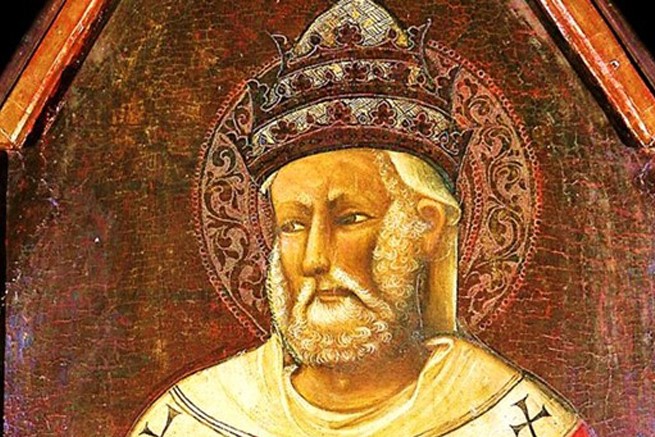
Saint Of The Day For December 11: Saint Damasus I
It is thanks to Damasus, Pope from 366 to 384, that the memory of so many early martyrs was not lost: every identified tomb was adorned with epigraphs passing on the deeds of the deceased.
He strongly defended the Petrine primacy and commissioned the translation of the Bible into Latin.
The history of Damasus
According to Saint Jerome, Damasus was Pope between 366 and 384 and is said to have been born around 305. From the inscriptions he placed in churches, we know something about his family. His father Antony was a scribe and news gatherer who later became a priest. His mother Lorenza, on the other hand, lived a long life (89 or 99 years) and consecrated the sixty years of her widowhood to God. Of Damasus we do not know much except from his youth, when he was by then a deacon. We do know that Constantius II, son of Constantine, deported Pope Liberius into exile because he would not obey his demands. If at first it seemed that Damasus followed him, he actually remained in Rome, but always faithful to the Pope, so much so that he promised, together with the other presbyters and deacons, that there would be no new election as long as Pope Liberius was alive. It was in this context that the archdeacon Felix had himself ordained Bishop of Rome and was thus known as the anti-pope Felix II.
Damasus, pope
During a meeting at one of the Christian cemeteries on the Via Salaria, Damasus – on the instructions of Pope Liberius still in exile – was elected bishop of Rome. His pontificate was marked by struggles and heresies, as well as by the presence of antipopes, who were punctually condemned. He convened two Councils in Rome, one in 371 and the other in 374, where the errors against the Holy Spirit and against the perfect humanity of Christ, already established at the Council of Nicaea in 325, were condemned. In 381, another council dedicated to the Holy Spirit was held in Constantinople in the presence of Gregory Nazianzen, bishop of the city. In 382 Damasus again presided over a Council in Rome, which was attended by Saint Ambrose of Milan, Valerian of Aquileia, Saint Jerome, and Paulinus of Antioch. This event allowed Saint Jerome to prove himself as a pious and particularly learned man and it was to him that Pope Damasus entrusted the task of translating the Bible into Latin.
Damasus, archaeologist
It was Damasus who recovered the importance of the catacombs, which had been abandoned after the peace of Constantine and freedom of religion. He thus brought back the tradition and had consolidation and extension work carried out. Also thanks to the work he learned from his father, he brought to light what he considered of interest, catalogued it and marked, with poetic epigraphs, the virtues of the martyrs. What moved him was piety and at the same time he felt a responsibility not to disperse the history of those who had given their lives for the Lord throughout the first centuries, and at the same time he showed the unity of the Church along the way. Damasus built the cemetery basilica, where he would later be buried, along the Appian Way, near St Callistus; a plaque bears this epigraph: ‘Here, I confess, I Damasus thought of laying my remains, but I was afraid of profaning the holy ashes of the Blessed’.
Read Also:
Saint Of The Day For December 9: Saint Juan Diego
Saint Of The Day For December 7: Saint Ambrose
Saint Of The Day For December 6: Saint Nicholas
Saint Of The Day For December 8: Immaculate Conception Of The Blessed Virgin Mary
8 December 1856: Lyon, SMA (African Missions Society) Is Founded
D.R. Congo: Congolese Catholics Take To The Streets To Protest Increasing Violence
DR Congo, They Were Organising A Peace March: Two Women Kidnapped In South Kivu
